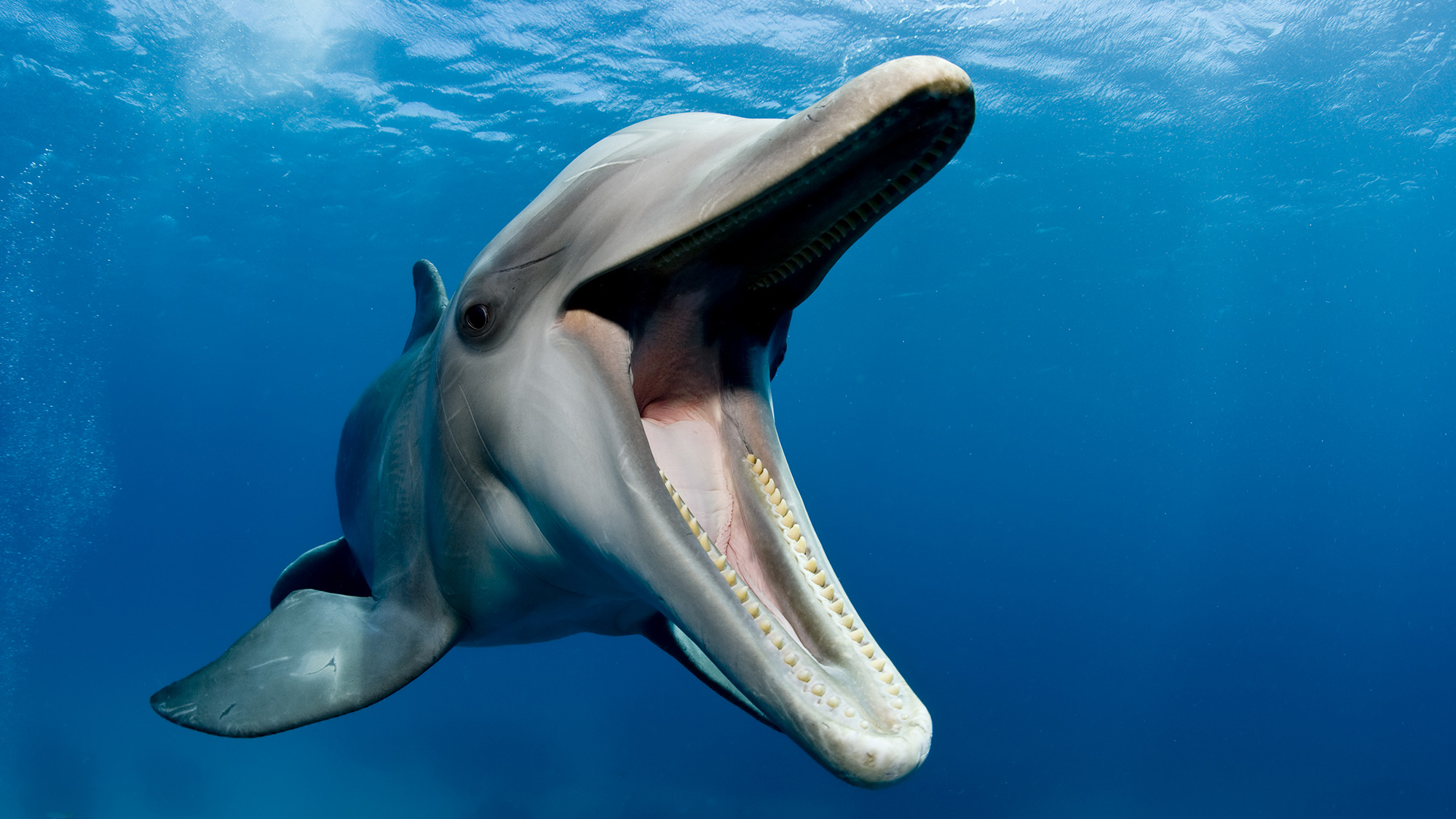

We may earn revenue from the products available on this page and participate in affiliate programs. Learn more ›
A solitary dolphin swimming off Denmark’s frigid coast is chirping and yelling into the vast nothingness, and no one is responding. The 17-year-old bottlenose Dolphin, which locals named “Delle,” was first spotted roaming the Svendborgsund channel around five years ago. That’s odd because the area is far outside the region dolphins normally traverse. Odder still, Delle appeared all on his own, a rarity for a highly social species that almost always travels in pods.
Marine biologists from the University of Southern Denmark heard about Delle and noticed a unique opportunity to listen to sounds made by an isolated dolphin in the wild. When they dropped a microphone in the area where Delle traveled for several months, they expected to hear few, if any sounds. They were shocked by what they found.
“Contrary to our expectations, we found that the solitary dolphin was highly vocal,” the researchers wrote in a paper published in the journal Bioacoustics last month.
The researchers believe the surprising findings suggest Delle, starved for social interaction, might be talking to himself. Delle even created multiple “signature” whistles, which pods of dolphins ordinarily use to identify each other.
[Related: Male dolphins form alliances to help each other pick up mates]
Delle emitted 10,833 sounds over the course of three months
The researchers listened in on Delle with an underwater microphone for 69 days, between December 8, 2022, and February 14, 2023. Though they initially weren’t expecting much, the researchers say they detected communicative sounds in 35 out of the 69 days.
Delle was quite vocal during those days. In total, researchers say they detected 2,239 whistles, 5,487 low-frequency tonal sounds, 767 percussive sounds, and 2,288 burst pulses. Those burst pulses, which sound like a rapid series of clicks, were particularly interesting because dolphins often emit those sounds as a sign of aggression towards others in their pod. But Delle was all alone. Delle also produced three separate signature whistles. Bottlenose dolphins ordinarily have one unique whistle, which functions akin to a name they use to identify themselves to others.
“I thought we might pick up a few distant whistles or something along those lines,” University of Southern Denmark cetacean biologist and paper lead author Olga Filatova said in a recent interview with Live Science. “I certainly didn’t anticipate recording thousands of different sounds.”
Delle, starved of friends, might be engaging in ‘self-talk’
The researchers could not say for certain just why Delle was so vocal. At first, they thought he may have been trying to communicate with a nearby paddle boarder but that theory fell apart after Delle was heard vocalizing even during times when the water was free of people. Researchers also thought Delle may have simply been calling out in an effort to grab the attention of other dolphins. That too seems unlikely, however, considering the length of time he has been spotted isolated in the area.
Maybe a more likely answer, Filatova told Live Science, is that Delle might be making involuntary sounds triggered by emotion, similar to how we may laugh to ourselves if we hear something funny.
“It is highly unusual that the dolphin produced these sounds without any conspecifics present,” the researchers wrote in the paper. “This indicates that dolphin ‘communicative’ sounds may be produced unintentionally as emotional signals or serve functions other than communication.”
But there’s another, more speculative answer. Delle, devoid for so long from its intrinsic need for social interaction might be filling in the gaps by talking to himself. In humans, this phenomenon is referred to as “self-talk.” Research has shown humans who are isolated for prolonged periods of time tend to engage in higher levels of self-talk. Still, the researchers cautioned against drawing too many conclusions, especially since self-talk in humans isn’t all that well understood.
There’s one other maybe deeper mystery though that the study does not fully answer. Why did Delle decide to go it alone in the cold Baltic Sea in the first place? Was he ostracized from his pod? Did he somehow get lost and diverted off course? Is he a misanthrope writing his first novel in icy isolation? We will likely never know for sure.
